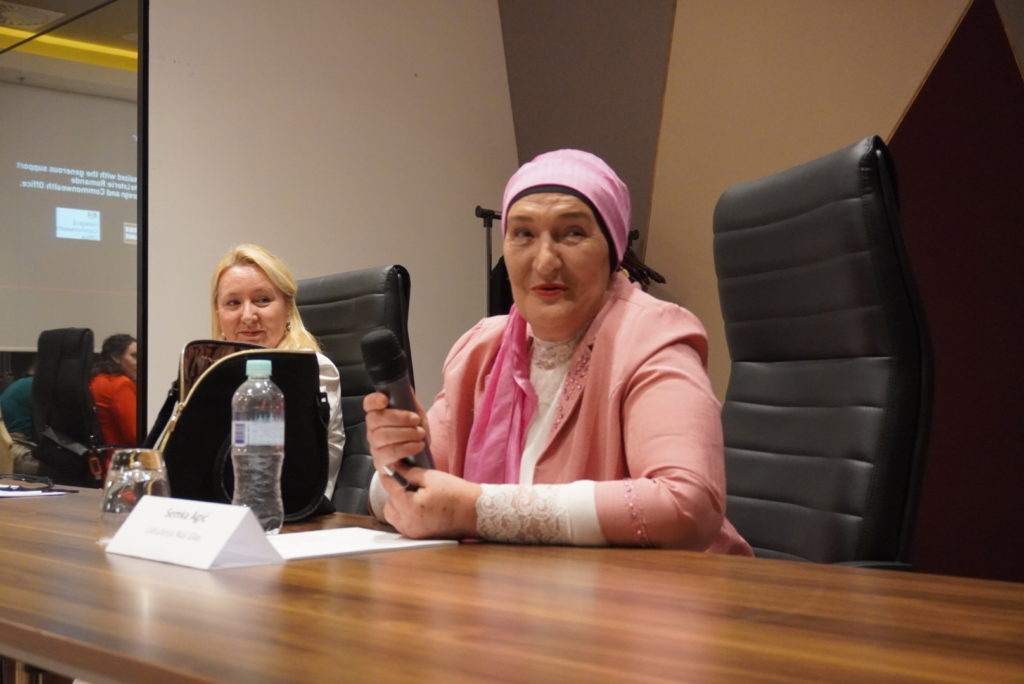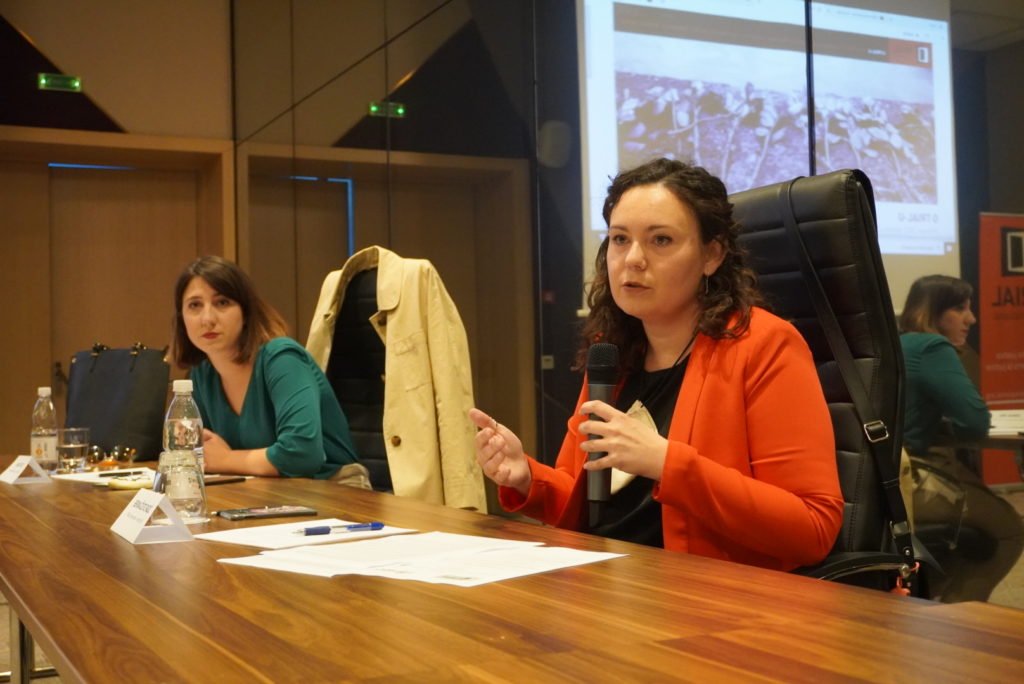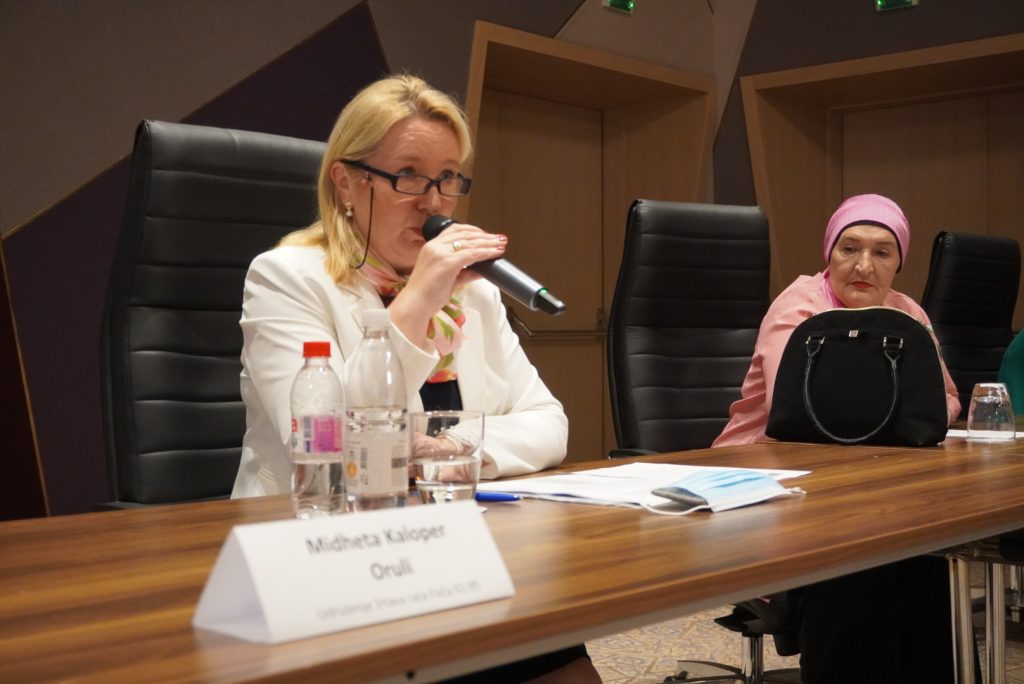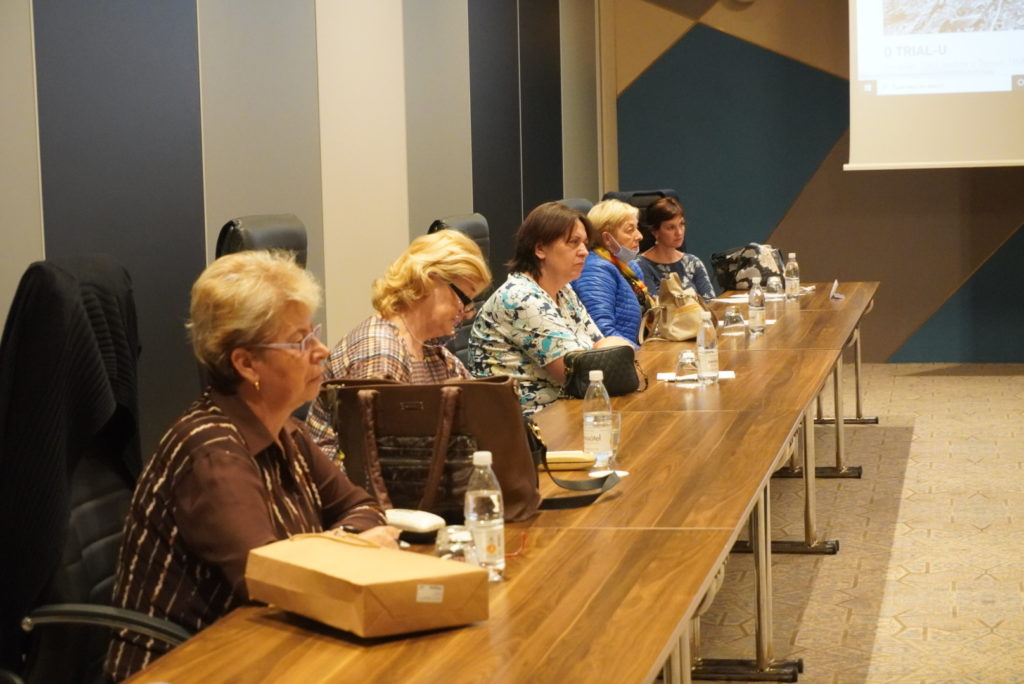ODRŽANA DISKUSIJA O PRAVIMA PREŽIVJELIH RATNIH ZLOČINA U OKVIRU KRIVIČNOG POSTUPKA
Ostvarivanje prava na pravdu i reparaciju
(7. oktobar 2020. godine) Kako bi se preživjelim ratnog seksualnog nasilja, ali i preživjelim drugih ratnih zločina, približio pristup pravosudnom sistemu, a shodno tome i kako bi ih osnažilo i ohrabrilo u njihovoj borbi za pravdu, TRIAL International, u saradnji sa Udruženjem žrtava rata “Foča 1992-1995”, jučer je organzivao diskusiju pod nazivom “”Ratni zločini – Pravo na pravdu i reparacije u krivičnim postupcima”.
“Pravdu sam pokušala ostvariti tokom čitavog rata i po završetku rata”, svoju priču započinje Semka Agić, članica udruženja “Naš glas”. “To je dugo trajalo, ali ja sam bila uporna a i TRIAL sa mnom, pa smo im stalno visili za vratom. Kada je proglašen ratnim zločincem, sav sam svoj teret žrtve prebacila na njega. Sad si ti žrtva, a sad sam ja – pobjednik”. Danas, Semka Agić otvoreno govori o svom iskustvu traženja pravde u nadi da će njena priča ohrabriti brojne preživjele koji na nju još čekaju.

Nažalost, i više od dvije decenije nakon rata brojni su problemi koji sputavaju preživjele u njihovoj borbi da ostvare svoja prava. Na primjer, mnoge od njih se nose sa ozbiljnim psihološkim posljedicama zbog nezaliječene traume. Pristup pravdi je i dalje ograničen, uključujući i činjenicu da mnogi počinitelji odgovorni za zločine nad njima i njihovim porodicama još uvijek nisu procesuirani. Upravo iz tog razloga, ova diskusija ima za cilj da preživjelima približi njihova prava i dostupna sredstva da ih ostvare, a obuhvata četiri aspekata traženja pravde za preživjele a to su: uloga udruženja žrtava, pravna podrška u traženju pravde i pravične naknade štete u okviru krivičnih postupaka, psihološka podrška ali i prikaz ličnog iskustva u traženju pravde za počinjene ratne zločine.
“Smatram da je važno preživjele upoznati sa pravima u krivičnom postupku, kako bi se njihova uloga unaprijedila te kako bi aktivno učestvovali u istom, kako ne bili u ulozi pasivnog posmatrača, ili pak dokaznog sredstva, što je nažalost, često slučaj. Upoznavanje sa pravima, njihovo korištenje i stalno insistiranje na njima kroz proces može unaprijediti ulogu i položaj preživjelih. Određena prava su i namijenjena da ih zaštite ali i osnaže – pravo da budu informisani o statusu njihovih predmeta, prava u pogledu zaštite identiteta, te prava u pogledu ostvarivanja imovinskopravnog zahtjeva i pristupa besplatnoj pravnoj pomoći.”, kazala je Berina Žutić Razić, pravna savjetnica organizacije TRIAL International – Ureda u BiH.

Midheta Kaloper Oruli, sekretar Udruženja žrtava rata “Foča 1992-1995”, kazala je da za žrtve rata, a posebno osobe koje su preživjele seksualno nasilje u rata, su od veliko značaja diskusije na ovu temu.

“Ovakav susret daje preživjelim dodatnu motivaciju da se bore za pravdu, ma koliko put bio težak i trnovit. Moramo, i nakon ovoliko godina poslije rata, na svaki način ohrabriti naše sugrađanke da hrabro i dostojanstveno smognu snage i progovore o svemu što se dešavala tokom devedesetih”, pojasnila je.

